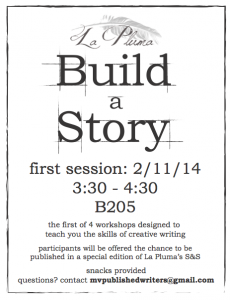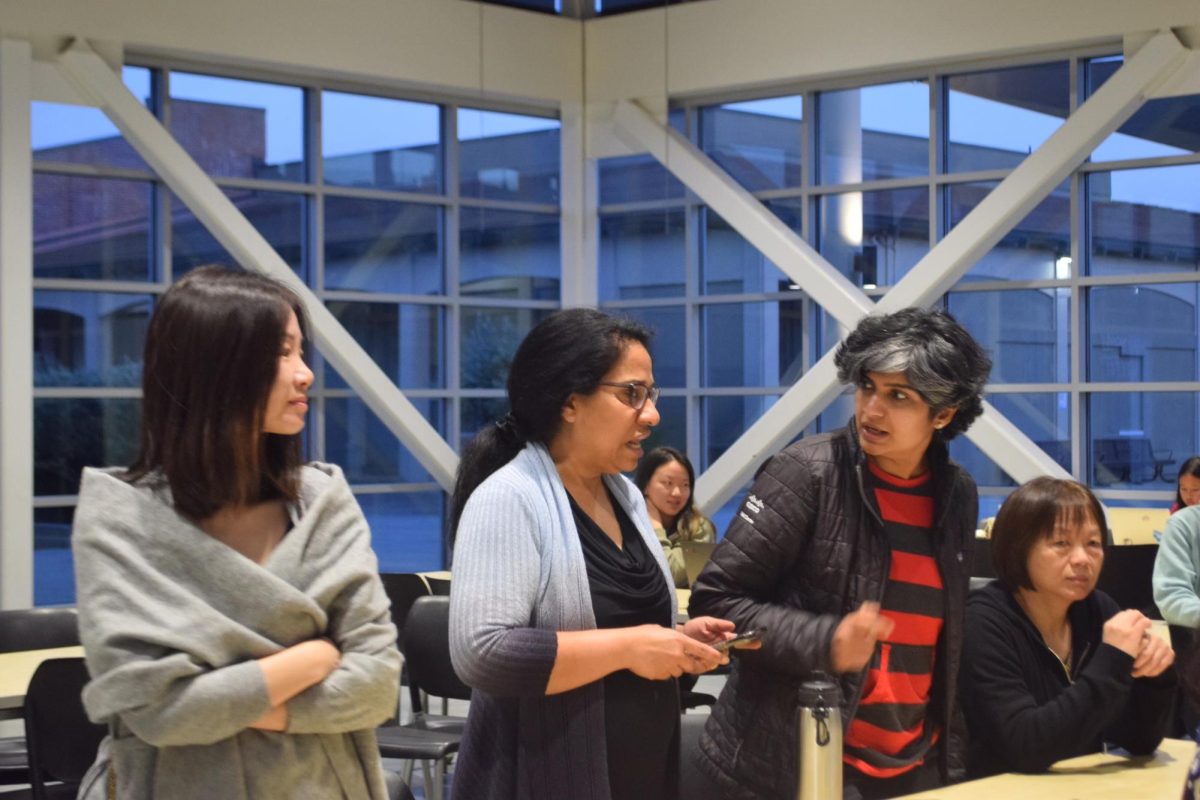La Pluma co-president Pooja Desai shares tips to improve writing.
1. Hone your craft by reading. Have a book with you at all times. Read as much as you can, whenever you can, wherever you can.
“I think reading gives a good opportunity to figure out how different authors explore their voices … It gives you new things to try and test out in your own writing.”
2. If you ever get stuck, read what you’ve already written aloud to yourself.
“For me at least, one of the really good inspirations to continuing my writing is to read what you’ve already written because you can often figure out sort of the voice you’re trying to go for … those little details that could lead you to the next thing you’re trying to write.”
3. Draft an outline. Have a general idea of your beginning, middle and end before starting. Begin with the end in mind and

then look at it again with a new perspective.
“I think it‘s important to continuously evaluate your perspective when you write. It‘s really nice to have an outline and know where you’re going when you write. It gives your story direction. But at the same time, to be able to bring in interesting dynamics that are gained from looking at the same thing from different perspectives is also a part of dynamic writing.”
4. Inspire yourself. Keep a journal: inspiration follows no rules. Make notes of things that inspire you, interest you, excite you [such as] images, words [or] phrases
“I bookmark tabs with really good pictures. I know people who bring notebooks with them and jot down words and phrases, or people who have quote walls. It‘s just resources of things that inspire you, that you can pull from when you write.”
5. First drafts always suck. Always.
“It doesn’t matter how good you are or how experienced you are. Just don’t let that get to you. Get it all out there and then go from there.”
6. Dare yourself to experiment, to improvise and take risks in your writing. Stretch your creativity. Challenge yourself.
“I think that one of the big concerns for a lot of writers and the scary thing about writing is that even though its really personal, its scary to take risks when you write because once you get into the flow of things, you have your way of doing it and don’t want to change. But I think that one of the greatest things you can do as a growing writer is to experiment, so try on different voices, copy different styles of authors because you can add elements of their styles to your own voice.”
7. Be your own critic. Listen to feedback and rejection. Ask questions, understand your flaws, then work to improve your weaknesses.
“I think this is just more of a critical evaluation of yourself. It‘s okay not to be very good or not to think of yourself as very good. Continuously work with yourself to get better. If there’s something you think you can do better, ask for help.”
8. Originality does not necessarily lie in thinking of something that no one else has thought of before. Don’t feel the pressure to be the first person to think of something.
“To quote a friend: ‘There are 5 original ideas left in the world and they’re hiding at the bottom of the ocean. The pressure to find them will kill you and your writing.’”
9. Show what you mean, let us feel it, see it, smell it and experience it. Don’t tell and rob us of the opportunity to discover.
“Writing and reading is a very dynamic, visceral experience. Its a very tactile experience and I think one of the big problems in a lot of writing is that it states what’s being said, but we don’t as readers want to read exactly what happened, we want to feel it.”
10. When you want to give up on yourself and your ability to tell stories, keep writing.
“To quote Ira Glass: ‘All of us who do creative work, we get into it because we have good taste. But there is this gap. For the first couple years, you make stuff, and it’s just not that good. It’s trying to be good, it has potential, but it’s not. But your taste, the thing that got you into the game, is still killer. And your taste is why your work disappoints you. A lot of people never get past this phase. They quit. It is only by going through a volume of work that you will close that gap, and your work will be as good as your ambitions. You’ve just got to fight your way through.’”







